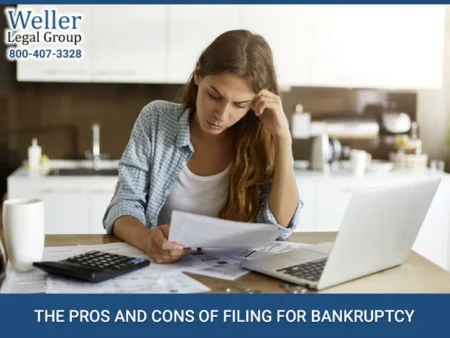the Pros and Cons of Filing for Bankruptcy
There are many pros and cons of filing for bankruptcy. One of the biggest cons to doing so is that when you file for either a Chapter 7 or a Chapter 13 bankruptcy, it’ll show up on your consumer credit report for anywhere up to the 10 years of your life. Another thing that you’ll want to take into consideration is that if you want to file for a federally backed mortgage loan, some creditors won’t approve you for credit while you’re still in bankruptcy. Read More +



